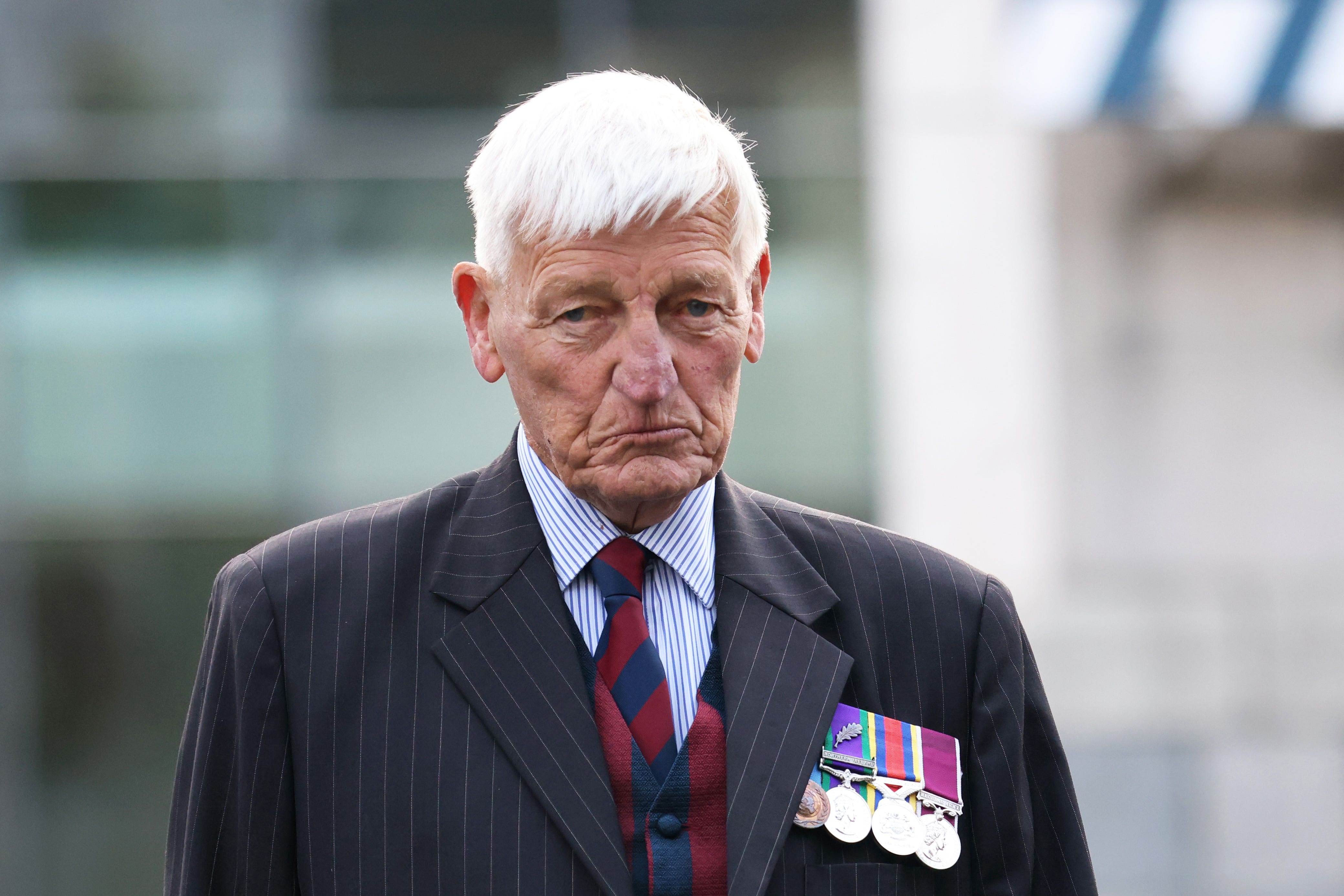Legacy Act will allow soldiers’ families to seek answers, says lawyer
The Northern Ireland Troubles (Legacy and Reconciliation) Act received royal assent earlier this month.

Your support helps us to tell the story
From reproductive rights to climate change to Big Tech, The Independent is on the ground when the story is developing. Whether it's investigating the financials of Elon Musk's pro-Trump PAC or producing our latest documentary, 'The A Word', which shines a light on the American women fighting for reproductive rights, we know how important it is to parse out the facts from the messaging.
At such a critical moment in US history, we need reporters on the ground. Your donation allows us to keep sending journalists to speak to both sides of the story.
The Independent is trusted by Americans across the entire political spectrum. And unlike many other quality news outlets, we choose not to lock Americans out of our reporting and analysis with paywalls. We believe quality journalism should be available to everyone, paid for by those who can afford it.
Your support makes all the difference.The lawyer for a military veteran who died in Northern Ireland while on trial for a 1974 killing has welcomed new laws to deal with the legacy of the Troubles.
Philip Barden, who represented Dennis Hutchings, said the Act would allow soldiers who had served in Northern Ireland and discharged their weapons, to apply for immunity from prosecution by “giving a true account of what happened”.
Hutchings, 80, died in October 2021 after contracting Covid-19 in the middle of his trial at Belfast Crown Court.
I have long been requesting an end to criminal investigations and prosecutions which have caused far more harm than good and therefore welcome any legislation aimed at delivering better outcomes for those who were on the front line seeking to keep others safe
A former member of the Life Guards regiment, Hutchings, from Cawsand in Cornwall, had been accused of the attempted murder of John Pat Cunningham, a man with learning difficulties, in Co Tyrone in 1974. He denied the offence.
Mr Cunningham, 27, was shot dead as he ran away from an Army patrol across a field near Benburb.
The Northern Ireland Troubles (Legacy and Reconciliation) Act received royal assent last month despite widespread opposition from political parties, victims’ organisations in Northern Ireland and the Irish government.
Aspects of the laws include a limited form of immunity from prosecution for Troubles-related offences to those who co-operate with the new Independent Commission for Reconciliation and Information Recovery (ICRIR).
It will also halt future civil cases and inquests.
A number of families of Troubles’ victims have launched judicial reviews against the new laws and a High Court judge said on Thursday that he wanted to hear the cases in November.
But Mr Barden, from legal firm Devonshires, said the act would allow relatives of soldiers who died in Northern Ireland to seek answers.
He said: “Having spent 25 years assisting soldiers in Troubles-related matters, I am pleased to see the Northern Ireland Troubles Act has now become law.
“I have long been requesting an end to criminal investigations and prosecutions which have caused far more harm than good and therefore welcome any legislation aimed at delivering better outcomes for those who were on the front line seeking to keep others safe.
“Soldiers who served in Northern Ireland and discharged a weapon in circumstances where someone died will now be able to apply for immunity from any criminal proceedings by giving a true account of what happened.
“I also welcome provisions in the Troubles Act for the relatives of those soldiers killed, who have long been denied a voice, to seek answers.”
Mr Barden added: “Whereas inquests in Northern Ireland to date have seemingly been directed at circumstances where security forces acted against terrorists, the legislation now applies equally to all next of kin.
“It is to be hoped that the ICRIR will find a way to effectively investigate the actions of the terrorists, who were responsible for 90% of the deaths.”
The ICRIR will be headed by former Lord Chief Justice for Northern Ireland Sir Declan Morgan. The body will review hundreds of unresolved Troubles deaths.